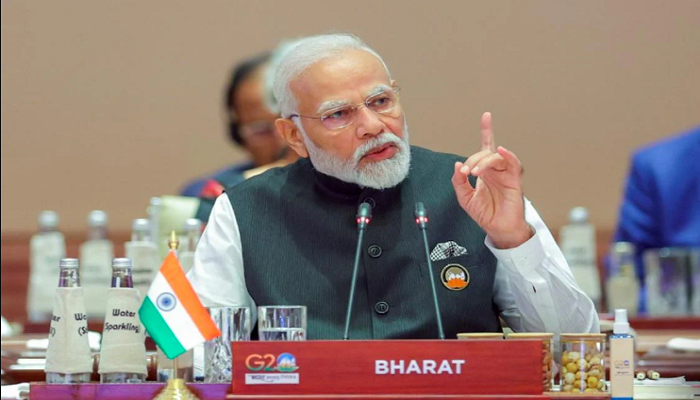Transformative Multilateralism: In the past 365 days, as India assumed the G20 presidency, it embarked on a journey to reshape the global narrative. Faced with a complex landscape marred by the aftermath of the COVID-19 pandemic, climate threats, financial instability, and diminishing multilateralism, India aimed to bring about a paradigm shift. The focus was on prioritizing human-centric progress over GDP-centric approaches, fostering inclusivity, and championing the aspirations of the many.

Inclusivity at the Core:
Under India’s leadership, inclusivity became the cornerstone of the G20 agenda. Notably, the inclusion of the African Union as a permanent member expanded the dialogue to encompass 80% of the global population. The groundbreaking “Voice of the Global South Summit” underscored India’s commitment to mainstreaming the concerns of developing nations, a move that resonates in the global discourse.
People’s Presidency:
India’s domestic approach to the G20 was characterized by inclusivity through “Jan Bhagidari” events, engaging 1.4 billion citizens and involving all states and Union Territories. This people-centric strategy aligned with G20’s broader developmental aims, emphasizing the importance of international attention to fundamental issues.
Sustainable Development Goals (SDGs) and Digital Innovation:
At the heart of India’s G20 agenda was the 2023 Action Plan to Accelerate Progress on the SDGs. A key driver was the focus on robust Digital Public Infrastructure (DPI), with India leveraging its experience with transformative digital innovations. The creation of the Digital Public Infrastructure Repository, featuring over 50 DPIs from 16 countries, exemplifies India’s commitment to global technological collaboration.
Green Development Pact:
India introduced the “Green Development Pact” in the G20 Declaration, addressing the challenge of balancing hunger eradication and environmental protection. The pact outlines a roadmap where employment and ecosystems coexist, consumption is climate-conscious, and production is planet-friendly. The G20’s commitment to tripling global renewable energy capacity by 2030 and initiatives like the Global Biofuels Alliance and Green Hydrogen reinforces India’s dedication to a cleaner, greener world.
Climate Justice and Financial Support:
The G20 Declaration underscores India’s commitment to climate justice, advocating for substantial financial and technological support from the Global North. Recognizing the monumental resources required, the G20 emphasized the role of more effective Multilateral Development Banks. Simultaneously, India is actively engaged in UN reforms, striving for a more equitable global order.
Empowerment of Women:
Gender equality took center stage in the Declaration, leading to the formation of a dedicated Working Group on the Empowerment of Women. India’s Women’s Reservation Bill 2023, reserving one-third of parliamentary and state legislative assembly seats for women, exemplifies the nation’s commitment to women-led development.
Conclusion: India’s G20 presidency witnessed a transformative period, revitalizing multilateralism, amplifying the Global South’s voice, championing development, and advocating for the empowerment of women. As Brazil takes over the G20 Presidency, India is confident that the collective efforts for people, planet, peace, and prosperity will echo for years to come.

